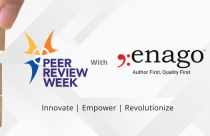Growing Political Correctness in Social Science Peer Reviewing? Some personal reflections on experiences in African studies

This essay is the result of a growing number of puzzles that I encountered in anthropology/ African Studies. What got me started was the row in late 2022 over a paper in the journal African Studies Review (ASR), a fairly top journal in African studies. This quite bizarre essay on ‘auto-ethnography’ by two Americans (Kathryn Mara and Katrina Daly Thompson) led to quite trenchant criticisms as to its perspective and quality (cf. Flaherty 2022). But it had passed peer review. This row alerts us to problems in the field of (peer) reviewing and of assessing work in African studies and the social sciences in general. What is ‘knowledge’? What are the criteria for accepting a paper? Is fashionable progressivism becoming a requirement? Can papers with ‘politically’ diverging views still be accepted in certain forums when the research data are bad but the rhetoric ‘good’? Or when the data and the methods used are good but the conclusions ruffle the feathers of certain progressive or conservative orthodoxies? Or do authors have to go to ‘niche’ publications only – that largely talk to and among themselves anyway? In other words, is there still space for ‘adversarial’ reviewing or actual cooperation that really advance knowledge and insight, like in the recent pioneering study by Ceci, Kahn and Williams (2023) on gender bias in science?
This blog is not primarily about the problems of peer review in African studies/ social science as an ‘institution’ (known since at least a hundred years; see Csiszar 2016) but about the growing impact that ideological bias and ‘political correctness’ seem to have on it. The current era of persistent critiques on the ‘identities’/backgrounds of researchers and the dominant research methods of social scientists, including the discussions on ‘wokeness’ and related controversial concepts such as ‘cultural appropriation’, show that the epistemology of African studies and the social sciences in general is under strain due to these relatively new tendencies. The current emphasis on DEI (= diversity, equity and inclusion, although in themselves nice concepts), notably at American universities, is contributing to this (Friedersdorf 2023). In this blog I reflect on some of the challenges, without aiming to generalize. Based on recent readings (like the above paper in the ASR) and some personal experiences, I ask the question of what is happening with (anonymized) collegial peer view of academic work. Presumed colleagues seem to increasingly operate on political correctness and subjectivist or personal criteria. That not only makes bias slip in but entrenches it. Of course, anonymous peer review as always been susceptible to this but it was more or less under control. Criticisms were voiced many times before (see e.g., Tancock 2018, Schimmack 2019), and not all scholars were convinced of its value. In the past decade or so, however, there is much more viewpoint parochialism. Many researchers note that if such tendencies are allowed to dominate scientific exchanges, they would spell the death knoll for the academy. These things have not yet expanded full force to Europe, but a certain self-inflicted but ill-reflected guilt complex (see for some fun reading: Bruckner 2013) among academics might make them more susceptible to it. Experiences from the US have shown that these developments towards DEI-led parochialism have not led to better science or better pursuit of truthful accounts or more openness to ‘discovery’, or to workable or acceptable solutions toward ‘social justice’ (as the ideal is said to be) – rather the opposite (There are also signs that more people are getting tired with it). In other parts of the world, including most Asian and African universities, the attitudes are much more relaxed vis-à vis these tendencies, and I would say more mature, as scientists there mostly still want to do serious, empirically-based work across the disciplines and while there is justified concern on colonial models and schemas still lingering too much in many academic establishments, and with perhaps the exception of South Africa, people are not inclined to delve into Western obsessions with politically correct approaches and excessively reflexive ‘self-criticism’.
Peer review is much discussed (one of the best papers on it is still Smith 2006) because it is a kind of arena where, behind the science, differences of opinion and even ‘theoretical’ battles may be fought out. It has become more acute due to ever-growing demand and pressure on journals to take on (more) manuscripts to review (cf. Dance 2023). The number of (often dubious and weakly monitored) new e-journals has also increased, accelerating the demand.[1] This rapid growth in social science journals in the past two decades has in my opinion also led – even with reputable publishers, like Routledge or Taylor & Francis, to more carelessness or sloppiness in reviewing (I notice it myself, being asked to do a new review at least once a week: impossible, so I reject most requests). This tendency in today’s peer reviewing may undermine its original and noble function – professional, informed and benevolent collegial reviewing of a new study – and can lead to a decline in standards and generosity towards the authors. Most top journals (perhaps some 10% in any discipline) may still have serious peer review processes – because of the quality of work submitted and the collegial honor to have been invited to review it. Still, even here one must offer manuscripts that fit the editorial predilection and style (if not jargon), and some unreadable stuff regularly passes (apart from the African Studies Review, I am reminded of the American Ethnologist). The significant fragmentation in the social sciences (my discipline of anthropology is an example, despite the brilliant work done here and there) has led to a number of parochial, sectarian sub-communities that do not appreciate or tolerate the work of others, especially when it’s outside their theoretical or methodological domain (the past battle between top anthropologists M. Sahlins and N. Chagnon comes to mind).
Today’s creeping crisis in social science and African Studies is one other metamorphosis of such controversies on method, science and research ethics, and must be addressed, because if left unanswered or uncalibrated, we will fragment the disciplinary or areas studies peer review communities even more and undermine the fields’ authority or persuasiveness. If we cannot advance debate and exchange or merit-based work (cf. Paul 2023) towards better explanations of observed reality, these broad fields will be hastened toward their demise, via trivialization, literary musings, and even frivolousness. This would be a victory for conservatives inimical to social science and the humanities, and it should of course not be allowed to happen. The issue now (mid-2020s) is adjacent to debates on scholarly ‘decolonization’, but not identical to them (see Abbink, forthcoming). Decolonization – as a critical recalibration of possibly biased research methods and interpretive assumptions that lack a priori general validity and are not sufficiently questioned – is a valid concern, although the term and its program need to be critically defined and assessed (cf. Táíwò’s great study, 2022) as to its nature, aims and results. ‘Decolonization’ has not yet really delivered, and in its turn seem to amount to another kind of ‘colonization’ of the mind – with new dogmas and conformism. Its status as the new political correctness now seems to have been morphing into the ‘wokeness’ paradigm. It is perhaps remarkable that the problems are so ‘contemporary’ – they are characteristic of the current Zeitgeist, and in say 30 years people will be amazed how an entire generation indulged in a preoccupation with these issues of manifest political bias, DEI and gender politics, not seeing that they are ‘contingent’: predominantly a sign of the age, and rehearsing an old topic: that of subjectivist vs. objectivist epistemology – although this opposition is largely spurious (cf. Little 1995).
The peer review process – a cornerstone of mainstream scientific practice and an essential collegial habitus – is no doubt impacted by the phenomenon of PC. Due to massification of (social) science and the battle for funding, collegial openness and solidarity are getting precarious. Sub-communities, almost of a ‘tribal’ nature, have emerged and support their members in processes of reviewing, recommending, etc. independent researchers that prefer to go their own way wherever the evidence of the research leads them thus have less impact. ‘Schools of thought’ in scientific practice have of course always existed, but until a few decades ago they usually agreed to disagree and didn’t really boycott each other or block people with assumptions, views and findings different from their own.[2] (Although I may be mistaken here). Nowadays this is very commonplace and on the increase. I never believed in this tendency and kept hope in the tolerance and openness of social scientists. But that was a mistake. The level of prejudice, conceit and parochialism have increased notably: social scientists/commentators can be just as biased and puerile as any other humans, also in the formal settings of journals and their review processes.[3]
I discuss a few cases that concerned me in the past two years (the first that I encountered in my now decades-spanning career). They don’t compare to the heavy and more important cases alluded to above, but fit in the trend of contestable peer reviewing and crumbling collegial benevolence. I give here of course my own interpretations and others may disagree. But I just felt quite uncomfortable in a way never encountered in the previous 30 years. I begin with the key story.
In 2019, I submitted a paper to a peer-reviewed Africanist journal. It was about exploring the legal tactics – via court or political action – of Muslim leaders and organizations in three African countries to further religious policies and religious activism in the public sphere and to challenge existing secular constitutions. I noted aspects of both intimidation and incorrect/unfair reasoning on the basis of religious and not political-constitutional motives, and thought that in a nominally ‘secular’ order (as all three countries discussed were) this was interesting but also problematic. The paper went through two rounds of peer reviewer comments, which I duly handled so as to improve and finetune the paper – without sacrificing its main thrust. In the final round, the paper had been given a green light, “subject to minor revisions”. I made these (third round) and returned the ms. But then it came back rejected. No third revision opportunity was given; suddenly an outright rejection. That was of course was not acceptable in view of the earlier conditional acceptance pending the minor revision needed. No reason was given. I am guessing but it seems that ultimately the critical notes I made in the paper on the dogmatic approach of Muslim interest groups and theologians endangering the secular legal order in some African was perhaps too much to stomach for one of the (Muslim?) referees (The other two had given it approval). The editors seemed afraid to go against his/her judgement. This weak editorial response was dubious – editors were not obliged to go along with the negative criticism of one of three reviewers in the last round of reviewing. They chickened out and rejected the paper while all reviewers’ queries had been addressed. My letter with a reasoned rejection of this way of handling the review process was met with silence – they simply refused to answer. So here we had clear and indefensible bias (cf. Smith 2006: 180). The process had led to a paper substantially modified from the first version. Journal editors have an important role to play and should overrule the reviewers when necessary. Unfortunately in my case [4] that did not happen, costing me at least one-and-a-half year delay (beyond the time taken to address the reviewers’ suggestions) in publishing the paper elsewhere.
Another notable instance I experienced related to my commentaries on the Ethiopia war of 2020-2022, given as an informed academic, in general media and the written press. Based on my years of previous research on Ethiopian political culture, I closely followed this devastating conflict. It had started when the Tigray Peoples Liberation Front (TPLF), a dissenting, heavily armed party ruling the Tigray Region in northern Ethiopia that had left the ruling party coalition in Ethiopia in 2019, started an unannounced armed insurrection on 3-4 November 2020, targeting federal Ethiopian troops and killing thousands. I wrote frequent commentaries and gave press interviews where I came out largely but not uncritically supporting the federal Ethiopian government in its justified attempt to guard the unity and integrity of the country and prevent an armed take-over by the TPLF. This unpopular party expanded towards neighbouring regions, made tens of thousands of civilian victims in their war, occupied regions, used child soldiers and human wave tactics, and destroyed the economic, health and educational infrastructure of northern Ethiopia. In May 2021 the TPLF had been declared a ‘terrorist organization’ by the Ethiopian government. The war continued well into 2022 but led to the federal army pushing back the TPLF force to their ‘home region’ of Tigray and in effect defeated it. On 2 November 2022 a ‘Cessation of Hostilities’ agreement was suddenly signed in Pretoria, South Africa (mediated by the African Union and pressured by the USA), and the two opponents even became more or less allies. A big surprise, because the human cost and the devastation wrought by this TPLF-initiated war was enormous, and many observers had expected the federal army to eliminate or dismantle the TPLF and bring its leaders to court, rather than accept it as a kind of legitimate force. I had stuck my neck out in those written and oral commentaries, also in some global media, like Al Jazeera (which came to develop a notable anti-federal Ethiopia bias) with criticism of TPLF’s war abuse and digital warfare. Surprisingly, a large number of global media (big newspapers) and even academics in 2020-22 had chosen the side of the TPLF despite its aggression and its awful war record: they focused more on the alleged war damages and human rights abuses in war done by the Ethiopian federal army (of which there were no doubt serious instances) than on those of the TPLF. I countered this ‘pro-TPLF’ narrative. In late 2022 it was interesting to see that I was no longer getting invited by media or newspapers to give commentaries. However, many news reports and local testimonies then were coming out that supported the critical view on the massive abuses perpetrated by the TPLF on both ‘their own’ region and population (in the regional state of Tigray) as well as on the neighbouring areas to where they had extended the war. But critical commentary was then apparently no longer opportune.
My critical reporting on this war had an effect on my authorship in an academic publication called the Africa Yearbook, an annual on African affairs, issued by Brill publishers in Leiden, the Netherlands. I had been an author of the ‘Ethiopia’ chapters since 2004 and also had co-edited this yearbook for three years, and my university institute, the African Studies Center at Leiden University, was a founding partner and sponsor of the publication. So I had provided major time and effort to this publication over the years. I know, that gives you no privileges. But after I had submitted my chapter on 2021, with a matter-of-fact but still implicitly critical view (as it should be) of the causes of the armed conflict, the new co-editor for AY’s Eastern Africa section suddenly and without any clear reason terminated my contribution for 2022, with the ‘argument’ that it was time for personnel change. At least three other authors of country chapters in the book were as senior and long-serving as I, but were not terminated. The reason for throwing me out was the fact Mr. co-editor did not like my critical tone on the TPLF, not even being mindful of the facts that I presented supporting my critical descriptions. This was a pitiful and disappointing decision, to say the least, and a clear case of censorship. He wanted views more critical of the Ethiopian government and less of the TPLF. I can see no other explanation. That is academic collegial behaviour for you. The track record I had for this Africa Yearbook, with good chapters and past editorial efforts, were brushed aside because of diverging political views.
A related incident was my experience with the Global Observatory (GO) blog, hosted by the New York-based International Peace Institute, to which I had regularly contributed since 2015. In March 2022 I sent in a critical piece on a controversial initiative introduced to the US Congress Foreign Relations Committee (Bill HR8800) and aiming to impose sanctions on Ethiopia/Eritrea and their leaders but not on TPLF leaders (not mentioned, and implicitly supported). The piece was critical of US foreign policy thinking. The text was fully in line with the editorial criteria and format, but was neither acknowledged nor accepted. While I had boasted a good working relationship with the previous editor, the new editor, who had just came in that year, apparently changed course. She didn’t even give me a response: I was ‘cancelled’ and I never found out what she thought of my article. This despite the fact the year before (in January 2021) an article of mine for the GO was the most read paper of the IPI-GO blog that year. A communication on why my blog piece was not good enough would have been good, but again, political views apparently came in between. I went on and later published the piece elsewhere. So: exit Global Observatory.
A final example from the domain of press and blog articles is my nice experience with the so-called leading newspaper of the Netherlands, the NRC (www.nrc.nl). On 2 November 2021 I submitted a commentary piece on Ethiopia and it was accepted for publication, When I had made the final corrections one day before publication, the foreign affairs desk editor suddenly informed me that he would not publish it. Astonishment.. The reason given: I had published an opinion piece some weeks before in another Dutch newspaper (the Algemeen Dagblad) “on the same subject”. That was incorrect, because that piece had been on the Ethiopian parliamentary elections, while my text for NRC was on the armed conflict in the country – quite different. The reason for the sudden refusal: political dissatisfaction with my interpretation of the Ethiopia conflict, on which, also in The Netherlands, the politically correct view then was to criticize the Ethiopian federal government and protect the Tigrayan TPLF. In addition, I found out my view was at variance with that of the NRC’s East Africa correspondent (sitting in Nairobi, not Addis Ababa). Needless to say, this man also first and foremost criticized the federal government and hardly the TPLF, ignoring many facts. After this NRC debacle, other newspapers, magazines and media to whom I had given comments and information for their articles, also started avoiding me (although not causally related) – despite the fact that the appalling record of the TPLF became more and more apparent after the November 2022 peace agreement, and it mostly supported my earlier analyses.[5] That, for instance, Qatar-based Al Jazeera no longer asked me about this conflict I did not regret, seeing their often incorrect and propagandistic presentations of news on Ethiopia and other countries. I had the ‘pleasure’ of being twice interviewed on their TV programme – the last time with a list of bizarre and leading questions. My answers tried to break their ‘narrative’ and this they did not like, so the interview was over fairly quickly, and not to be repeated.
The above experiences show the role of ‘political’ sensitivities when academics speak, not only in the media but even in academic publications. The first two incidents above – with the academic journal and the Yearbook – really took me aback, but I should not have been surprised. Rather than complaining again I would say, hey, that’s the academic and media world today: openness to viewpoint diversity and generous collegial relations cannot be taken for granted and may be limited to small circles. And as to academic publishing we should add that not all ‘peers’ are really peers. Truthful, evidence-based writing (I am not claiming a monopoly here) seems to become optional, and posting politically correct opinions and/or self-advancement via publication in whatever way often come first. When submitting a paper to a journal one must carefully choose an ‘outlet’ that connects to one’s own circles of theoretically or even ideologically inclined reviewers, rather than count on an evidence-based and well-argued evaluation. It seems that not much has changed since the famous hoax paper of Alain Sokal in the academic journal Social Text (1996), attacking the sloppy scholarship of postmodernist/extreme ‘social constructivist’ approaches and demonstrating how vacuous and faddish editorial review can be. While by far not universal, the current decline of the ‘adversarial’ exchange of ideas in publication forums and the rise of politicized academic fiefs is neither healthy nor acceptable. This impasse will go a long way in explaining a gradual decline of trust in scientific endeavour among the wider public, notably in the social and historical sciences. And that is a shame.
References
Abbink, Jon (forthcoming 2024), “Is there a Western telos and is it in danger? A rationalist critique of some recent challenges to the social sciences and humanities.” (Submitted to journal).
Bruckner, Pascal (2010 [2007]). The Tyranny of Guilt: an Essay on Western Masochism. Princeton, NJ – Oxford: Princeton University Press.
Ceci, Stephen J., Shulamit Kahn & Wendy M. Williams (2023). Exploring gender bias in six key domains of academic science: an adversarial collaboration. Psychological Science in the Public Interest 24(1): 15-73.
Chagnon, Napoleon (2013). Noble Savages. My Life among Two Dangerous Tribes – The Yanomamö and the Anthropologists. New York: Simon & Schuster.
Csiszar, Alex (2016). Troubled from the start. Nature 532: 306-308.
Dance, Amber (2023). Peer review needs a radical rethink. Nature 614: 581-583.
Flaherty, Colleen (2022). Retract or attack? Inside Higer Education, May 22 (https://www.insidehighered.com/news/2022/05/24/black-scholars-demand-retraction-autoethnography-article).
Friedersdorf, Conor (2023). A uniquely terrible new DEI policy. The Atlantic, 13 October (www.theatlantic.com/ideas/archive/2023/10/dei-policy-california-community-college/675629/
Little, Daniel (1995). Objectivity, truth, and method. A philosopher’s perspective on the social sciences. Anthropology Newsletter 36 (8): 42-43. https://doi.org/10.1111/an.1995.36.8.42
Milstein, Nir, et al. (2022). Rivalry and performance: a systematic review and meta-analysis. Organizational Psychology Review 12(3): 332-361 (https://doi.org/10.1177/204138662210821).
Paul, Pamela (2023). A paper that says science should be impartial was rejected by major journals. You can’t make this up. New York Times, 4 May 2023 (www.nytimes.com/2023/05/04/opinion/science-evidence-merits.html).
Pulverer, Bernd (2010). Transparency showcases strength of peer review. Nature 468: 29-31.
Schimmack, Ulrich (2019). Peer-review is censorship not quality control. Replicability-Index.com (https://replicationindex.com/2019/09/02/peer-review-is-censorship-not-quality-control/).
Smith, Richard (2006). Peer review: a flawed process at the heart of science and journals. Journal of the Royal Society of Medicine 99:178–182.
Sokal, Alain (1996). Transgressing the boundaries: towards a transformative hermeneutics of quantum gravity. Social Text 46-47: 217-252.
Táíwò, Olúfémi (2022). Against Decolonisation: Taking African Agency Seriously. London: C. Hurst & Co.
Tancock, Christopher (2018). When reviewing goes wrong: the ugly side of peer review. Elsevier Connect, 23 March (www.elsevier.com/connect/editors-update/when-reviewing-goes-wrong-the-ugly-side-of-peer-review).
NOTES
[1] I am not even speaking of the ‘predatory’ or pay-to-publish journals, the number of which has also been mushrooming.
[2] I do not mean scientific rivalry in terms of competition or getting to a solution first, or in evoking professional efforts to refute others on evidence or better interpretation (see Milstein et al., 2022), but jealousy and subversion of others, trying to thwart their work.
[3] Read the late N. Chagnon’s fascinating 2013 book about the nasty campaigns conducted again him by misguided and even ideologically obsessed anthropologists that wanted to ‘cancel’ his approach to anthropological research. His work had some controversial aspects, but we do not have to agree with all of Chagnon’s theoretical and methodological notions to admire his major contributions to the field. His earlier anthropological monograph on the Yanomamö people (5 editions) was one of the few bestsellers in the discipline (over a million copies sold..).
[4] The journal in question was African Identities.
[5] That the record of the Ethiopian government significantly deteriorated after April 2023, mainly because of its war against the Amhara Region and its local self-defense forces, which had been the government’s allies in defeating the TPLF, is a different matter. What I described above occurred before April 2023.









